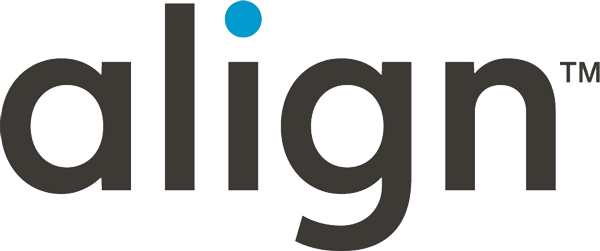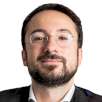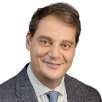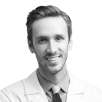Dr Giampiero Rossi-Fedele is currently a professor in endodontics at the University of Adelaide, South Australia, and since 2014 the course convener for the doctor in clinical dentistry in endodontics. Currently, he is one of the 32 global experts working towards the development of the European Society of Endodontology S3-level guidelines for the treatment of pulpal and apical diseases. Dr Giampiero is the lead author of the “Revised guidelines for educational requirements for specialisation in endodontics in Australia and New Zealand (July 2022)”. Apart from being the associate editor of the European Endodontic Journal, Dr Giampiero is a reviewer and editorial board member of several reputed international endodontic journals, including the Journal of Endodontics and International Endodontic Journal.
Dr Giampiero, it's a pleasure to have the opportunity to chat with you. You've had an extensive academic journey, from your initial qualification in dentistry to your current position as a professor in endodontics at the University of Adelaide. Could you share with us what initially sparked your interest in Endodontics, and how that passion has evolved over the years?
I studied dentistry at the University of Rome, La Sapienza in the 1990s. We had a very motivating professor called Vinio Malagnino. He made the discipline very enjoyable to all students and he was very approachable. He motivated me as well as many other colleagues—some very famous peers—who studied under him and engaged us with endodontics. My passion evolved with working and, from the clinical point, the ability to predict technical outcomes from the start is what keeps me going.
Your academic achievements are impressive, including obtaining your MClinDent in endodontology from UCL/Eastman Dental Institute and your PhD from PUCRs in Porto Alegre. How have these experiences shaped your approach to teaching and research in endodontics?
Every experience helps to shape who you are. I have been very fortunate to be exposed to many different philosophies, which has allowed me to create my own views. I have learned that endodontology is not black or white, but there are many subtle differences that are very meaningful and valid at one time.
As the course convener for the doctor in clinical dentistry in endodontics at the University of Adelaide, you play a pivotal role in shaping the next generation of endodontists. What are the key principles or skills you emphasise in your teaching to ensure your students excel in this specialised field?
Candid communication with patients. Update yourself critically throughout your career as your specialty course is the stepping stone in your life as a specialist.
In addition to your academic roles, you're also involved in various committees and societies, such as the Australian Society of Endodontics Education Subcommittee. How do you balance your academic responsibilities with your contributions to these professional organisations?
I believe that there is no separation between teaching, clinics, research and external engagement. They are managed in unison.
Obtaining your postgraduate certificate in learning and teaching from the University of London reflects your commitment to enhancing the educational experience for both students and fellow educators. Could you share some insights into the innovative teaching methods or approaches you've implemented in your endodontics courses?
This course allowed me to have a robust educational background. The specialty helped me to be a good clinician, the PhD to be a good researcher, but I needed a structured course to learn about education. At the end of the day, as a professor at the university, teaching represents one of my main duties.
This course helped me to understand that deep thinking and learning requires a period of search, of doubts, that makes students feel very uncomfortable as they seek a final answer to things, which does not exist.
Endodontics is a field that continuously evolves with advancements in technology and techniques. How do you stay updated with the latest developments, and how do you incorporate these advancements into your teaching and clinical practice?
In the presence of extensive novelties, it is hard to be aware of all of them. Attendance to international quality meetings and reading relevant literature helps. But a lot is missed, I am afraid. I feel that the use of engine-driven instrumentation and cone-beam computed tomography have been the two fundamental changes since I graduated as a dentist. These have been incorporated in specialist clinics extensively, but also are part of the research component of our post-graduate students.
You are one of the 32 global experts working towards the development of the European Society of Endodontology S3-level guidelines for the treatment of pulpal and apical diseases. What are your top three key points for ensuring success in root canal therapy?
Case complexity assessment before treatment and referral if required. Adequate prompt restoration. These are not exclusively based on the guidelines.
Are there any emerging trends or areas of interest that you believe will significantly impact the field?
We need to shift from technical outcomes to more meaningful clinical outcomes. Apart from the radiopacity of a root filling, many other outcome measures should be considered.
Beyond academia and clinical practice, are there any other passions or interests that you pursue in your free time? How do you find balance amidst your busy schedule?
Taking care of my family, and enjoying the open air. My children’s football matches. Adelaide is a place where work-life balance is still possible being a compact place.
Let us have a glimpse of a typical weekday in your life from morning to evening. How do you start your day by calling it a day?
I have a fair share of my clinics, and seminars with postgraduate students, and try to squeeze research when a gap is available, as research tends to be left behind. There are a lot of emails to attend to that alter the daily program.
With your wealth of experience, what advice would you offer to aspiring endodontists who are just starting their journey in this field?
Endodontics is a polarizing discipline. You either love it or hate it. If you love it, you are lucky to be one of us and you will have a life full of satisfaction.
Could you recall any lecture, book, or article that influenced you so much that its application changed the way you practice endodontics for the better?
The lecture for the undergraduate students at the University of Adelaide regarding tooth resorption by Prof. Geoff Heithersay. Amazing content and delivery. A paper I recommend is “Life as an endodontic pathogen”. A classic story of root canal microbiology.
Which are your top three book recommendations in endodontics?
Essential Endodontology (the edition by Pitt-Ford and Orstavik), Problem-Solving in Endodontics (Gutmann, Dumsha, and Lovdahl), and Seltzer and Bender's Dental Pulp (Hargreaves and Goodis).
Which are your top three favorite journals in endodontics?
The Journal of Endodontics, the International Endodontic Journal and the European Endodontic Journal.
Lastly, if you could sum up your philosophy or approach to endodontics in one sentence, what would it be?
Communication, communication, communication.
Topics:
Tags:
The Conceptual Hybrid Flare (CHF) technique is a novel technique developed to revolutionize the cleaning and shaping of root canals making the endodontic ...
To make the wait for ROOTS SUMMIT 2024 a little sweeter, the organisers would like to spotlight some of the speakers for next year’s edition, which will ...
As cancer treatments evolve, clinicians of all disciplines must also adapt their approaches to medical and dental treatments in order to best compensate for...
Registration for ROOTS SUMMIT 2024 is open, and the organisers would like to introduce some of the great speakers and their lecture topics for next year’s...
Lasers were introduced to dentistry in 1965 by Leon Goldman. The first application was a failure because of excessive thermal damage. We can only wonder ...
BENGALURU, India: According to the American Association of Endodontists, approximately 25 million root canal treatments are performed annually, and over ...
Dr Rajiv Patel from the US will be a speaker at the upcoming ROOTS SUMMIT, which will take place from 9 to 12 May in Athens in Greece. His lecture will ...
Live webinar
Wed. 19 June 2024
10:30 pm IST (New Delhi)
Live webinar
Mon. 24 June 2024
6:30 pm IST (New Delhi)
Dr. Lars Rosén Christensen
Live webinar
Mon. 24 June 2024
10:30 pm IST (New Delhi)
Live webinar
Mon. 24 June 2024
11:30 pm IST (New Delhi)
Live webinar
Tue. 25 June 2024
5:30 am IST (New Delhi)
Dr. Edgard El Chaar DDS, MS
Live webinar
Tue. 25 June 2024
11:30 pm IST (New Delhi)
Dr. Edgard El Chaar DDS, MS
Live webinar
Wed. 26 June 2024
12:30 pm IST (New Delhi)



 Austria / Österreich
Austria / Österreich
 Bosnia and Herzegovina / Босна и Херцеговина
Bosnia and Herzegovina / Босна и Херцеговина
 Bulgaria / България
Bulgaria / България
 Croatia / Hrvatska
Croatia / Hrvatska
 Czech Republic & Slovakia / Česká republika & Slovensko
Czech Republic & Slovakia / Česká republika & Slovensko
 France / France
France / France
 Germany / Deutschland
Germany / Deutschland
 Greece / ΕΛΛΑΔΑ
Greece / ΕΛΛΑΔΑ
 Italy / Italia
Italy / Italia
 Netherlands / Nederland
Netherlands / Nederland
 Nordic / Nordic
Nordic / Nordic
 Poland / Polska
Poland / Polska
 Portugal / Portugal
Portugal / Portugal
 Romania & Moldova / România & Moldova
Romania & Moldova / România & Moldova
 Slovenia / Slovenija
Slovenia / Slovenija
 Serbia & Montenegro / Србија и Црна Гора
Serbia & Montenegro / Србија и Црна Гора
 Spain / España
Spain / España
 Switzerland / Schweiz
Switzerland / Schweiz
 Turkey / Türkiye
Turkey / Türkiye
 UK & Ireland / UK & Ireland
UK & Ireland / UK & Ireland
 International / International
International / International
 Brazil / Brasil
Brazil / Brasil
 Canada / Canada
Canada / Canada
 Latin America / Latinoamérica
Latin America / Latinoamérica
 USA / USA
USA / USA
 China / 中国
China / 中国
 Japan / 日本
Japan / 日本
 Pakistan / Pākistān
Pakistan / Pākistān
 Vietnam / Việt Nam
Vietnam / Việt Nam
 ASEAN / ASEAN
ASEAN / ASEAN
 Israel / מְדִינַת יִשְׂרָאֵל
Israel / מְדִינַת יִשְׂרָאֵל
 Algeria, Morocco & Tunisia / الجزائر والمغرب وتونس
Algeria, Morocco & Tunisia / الجزائر والمغرب وتونس
 Middle East / Middle East
Middle East / Middle East
:sharpen(level=0):output(format=png)/up/dt/2024/06/3Shape-Discover-post-event-article-image-1920x1080-1.png)
:sharpen(level=0):output(format=jpeg)/up/dt/2024/06/Rise-of-unethical-at-home-dental-services-in-India.jpg)
:sharpen(level=0):output(format=jpeg)/up/dt/2024/06/Indian-paediatricians-want-to-know-more-about-oral-health.jpg)
:sharpen(level=0):output(format=jpeg)/up/dt/2024/06/cancer-vaccine-trials.jpg)
:sharpen(level=0):output(format=jpeg)/up/dt/2024/06/AI-Index-Report-2024.jpg)







:sharpen(level=0):output(format=png)/up/dt/2013/01/Amann-Girrbach_Logo_SZ_RGB_neg.png)
:sharpen(level=0):output(format=png)/up/dt/2011/07/fdi.png)
:sharpen(level=0):output(format=png)/up/dt/2022/06/RS_logo-2024.png)
:sharpen(level=0):output(format=png)/up/dt/2014/02/Planmeca.png)
:sharpen(level=0):output(format=png)/up/dt/2023/07/DirectaDentalGroup_Logo_2023_03_2lines_lowres.png)
:sharpen(level=0):output(format=png)/up/dt/2014/02/A-dec.png)
:sharpen(level=0):output(format=jpeg)/up/dt/e-papers/340486/1.jpg)
:sharpen(level=0):output(format=jpeg)/up/dt/e-papers/332719/1.jpg)
:sharpen(level=0):output(format=jpeg)/up/dt/e-papers/331220/1.jpg)
:sharpen(level=0):output(format=jpeg)/up/dt/e-papers/329595/1.jpg)
:sharpen(level=0):output(format=jpeg)/up/dt/e-papers/328476/1.jpg)
:sharpen(level=0):output(format=jpeg)/up/dt/e-papers/327304/1.jpg)
:sharpen(level=0):output(format=jpeg)/up/dt/2024/05/Dr.-Giampiero-Rossi-Fedele.jpg)

:sharpen(level=0):output(format=png)/up/dt/2024/06/3Shape-Discover-post-event-article-image-1920x1080-1.png)
:sharpen(level=0):output(format=png)/up/dt/2024/05/Dr.-Shikha-Sharma-300x300.png)
:sharpen(level=0):output(format=jpeg)/up/dt/2024/04/CHF-Technique-1.jpg)
:sharpen(level=0):output(format=jpeg)/up/dt/2023/09/ROOTS-SUMMIT-2024_Dr-Antonis-Chaniotis.jpg)
:sharpen(level=0):output(format=jpeg)/up/dt/2023/10/ROOTS-SUMMIT-2024_Dr-Josiane-de-Almeida.jpg)
:sharpen(level=0):output(format=jpeg)/up/dt/2023/08/Dr-Ruth-Perez-Alfayate_ROOTS-SUMMIT-2024.jpg)
:sharpen(level=0):output(format=jpeg)/up/dt/2023/02/Less-Prep-Endo%E2%80%94.jpg)
:sharpen(level=0):output(format=jpeg)/up/dt/2022/05/Researchers-use-nanobots-to-eliminate-bacteria-in-root-canals.jpg)
:sharpen(level=0):output(format=jpeg)/up/dt/2023/11/ROOTS-SUMMIT_Dr-Rajiv-Patel.jpg)




:sharpen(level=0):output(format=png)/up/dt/2024/06/3Shape-Discover-post-event-article-image-1920x1080-1.png)
:sharpen(level=0):output(format=jpeg)/up/dt/2024/06/Rise-of-unethical-at-home-dental-services-in-India.jpg)
:sharpen(level=0):output(format=jpeg)/up/dt/2024/06/Indian-paediatricians-want-to-know-more-about-oral-health.jpg)
:sharpen(level=0):output(format=jpeg)/up/dt/e-papers/332719/1.jpg)
:sharpen(level=0):output(format=jpeg)/up/dt/e-papers/331220/1.jpg)
:sharpen(level=0):output(format=jpeg)/up/dt/e-papers/329595/1.jpg)
:sharpen(level=0):output(format=jpeg)/up/dt/e-papers/328476/1.jpg)
:sharpen(level=0):output(format=jpeg)/up/dt/e-papers/327304/1.jpg)
:sharpen(level=0):output(format=jpeg)/up/dt/e-papers/340486/1.jpg)
:sharpen(level=0):output(format=jpeg)/up/dt/e-papers/340486/2.jpg)
:sharpen(level=0):output(format=jpeg)/wp-content/themes/dt/images/3dprinting-banner.jpg)
:sharpen(level=0):output(format=jpeg)/wp-content/themes/dt/images/aligners-banner.jpg)
:sharpen(level=0):output(format=jpeg)/wp-content/themes/dt/images/covid-banner.jpg)
:sharpen(level=0):output(format=jpeg)/wp-content/themes/dt/images/roots-banner-2024.jpg)
To post a reply please login or register